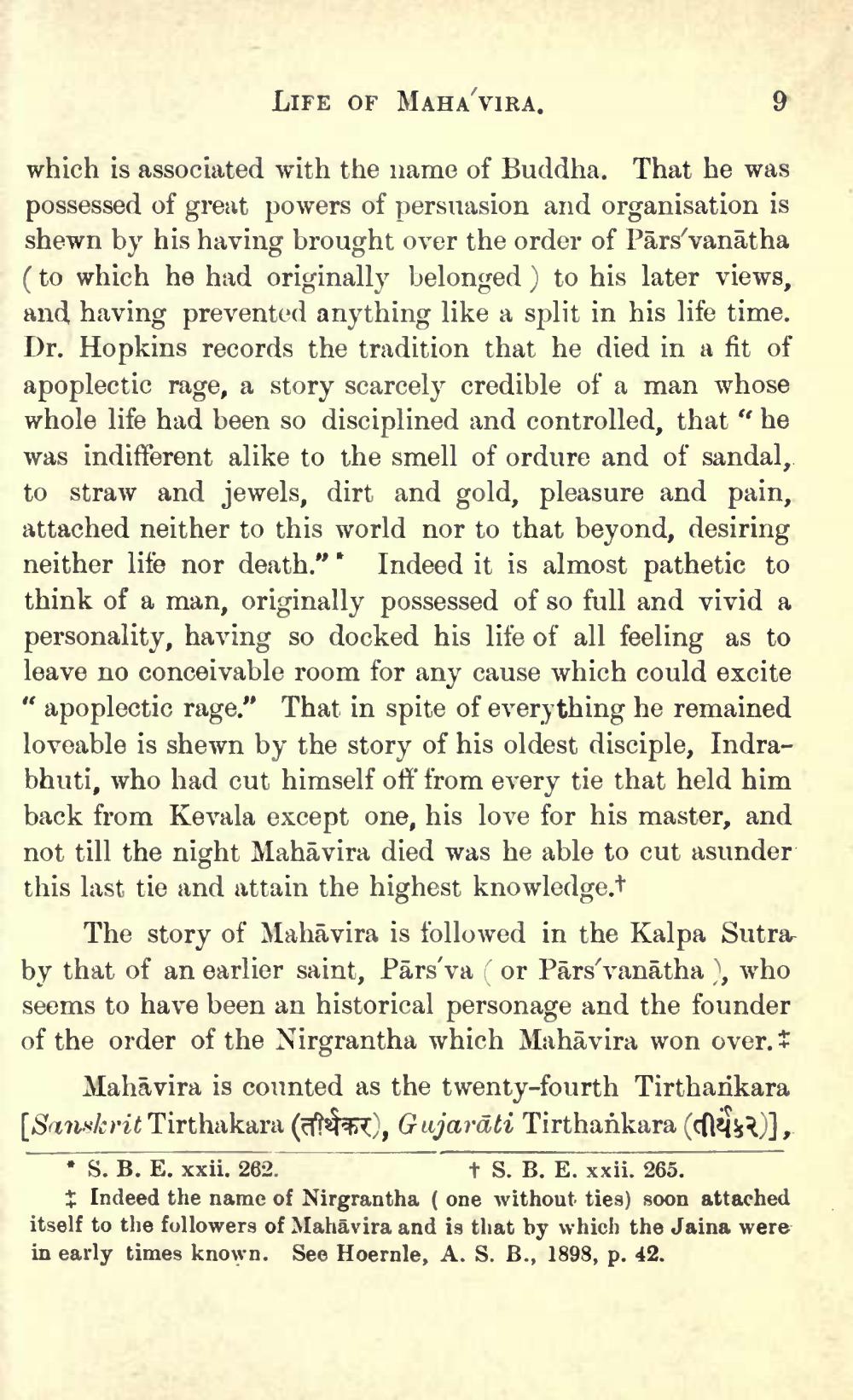________________
LIFE OF MAHA'vira,
which is associated with the name of Buddha. That he was possessed of great powers of persuasion and organisation is shewn by his having brought over the order of Pārs'vanātha (to which he had originally belonged) to his later views, and having prevented anything like a split in his life time. Dr. Hopkins records the tradition that he died in a fit of apoplectic rage, a story scarcely credible of a man whose whole life had been so disciplined and controlled, that "he was indifferent alike to the smell of ordure and of sandal, to straw and jewels, dirt and gold, pleasure and pain, attached neither to this world nor to that beyond, desiring neither life nor death."* Indeed it is almost pathetic to think of a man, originally possessed of so full and vivid a personality, having so docked his life of all feeling as to leave no conceivable room for any cause which could excite " apoplectic rage.” That in spite of everything he remained loveable is shewn by the story of his oldest disciple, Indrabhuti, who had cut himself off from every tie that held him back from Kevala except one, his love for his master, and not till the night Mahāvira died was he able to cut asunder this last tie and attain the highest knowledge.t
The story of Mahāvira is followed in the Kalpa Sutra by that of an earlier saint, Pārs’va ( or Pārs'vanātha ), who seems to have been an historical personage and the founder of the order of the Nirgrantha which Mahāvira won over. #
Mahāvira is counted as the twenty-fourth Tirtharikara [Sanskrit Tirthakara (alette), Gujarāti Tirthankara (chüsa)], * S. B. E. xxii. 262.
† S. B. E. xxii. 265. Indeed the name of Nirgrantha ( one without ties) soon attached itself to the followers of Mahāvira and is that by which the Jaina were in early times known. See Hoernle, A. S. B., 1898, p. 42.




